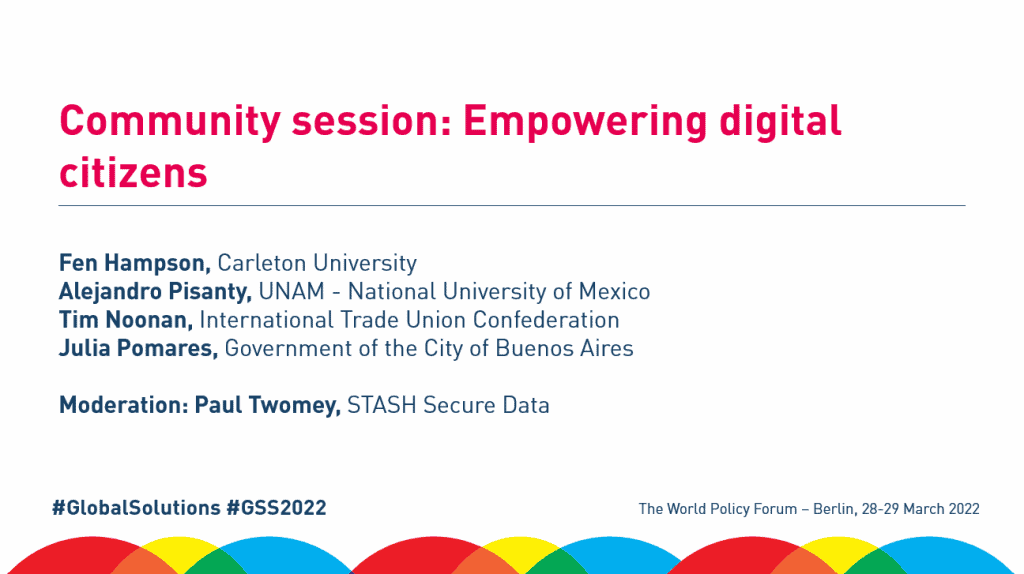Community sessions
Summit 2022
In the previous session on „Building human-centred and sustainable digital governance,“ a policy framework was presented that allows governments to move forcefully against a misalignment that exists in digital markets, namely between individuals and the other two market participants: digital service providers and the third-party funders of digital services who use the data collected by service providers.
The policy framework allows to introduce market forces to this relationship. This enables citizens to be active economic participants by having the ability to control access, and on what terms, to their data, provides incentives throughout the value chain for economic resources to be allocated in their most productive uses in satisfying the consumers’ needs. This is the basis for true “digital cititzenship,” in two senses: first, empowering digital users to shape their digital networks in accordance with their own objectives and, second, enabling the economic markets to work in an effective and humane way in meeting the digital users’ objectives at minimum resource costs.
This session will discuss the implementation of the policy framework. Is there a set of implementation and audit models through which the framework can be implemented? Can existing technical and business models, e.g. the Internet’s Domain Name System and e-commerce, be helpful?






